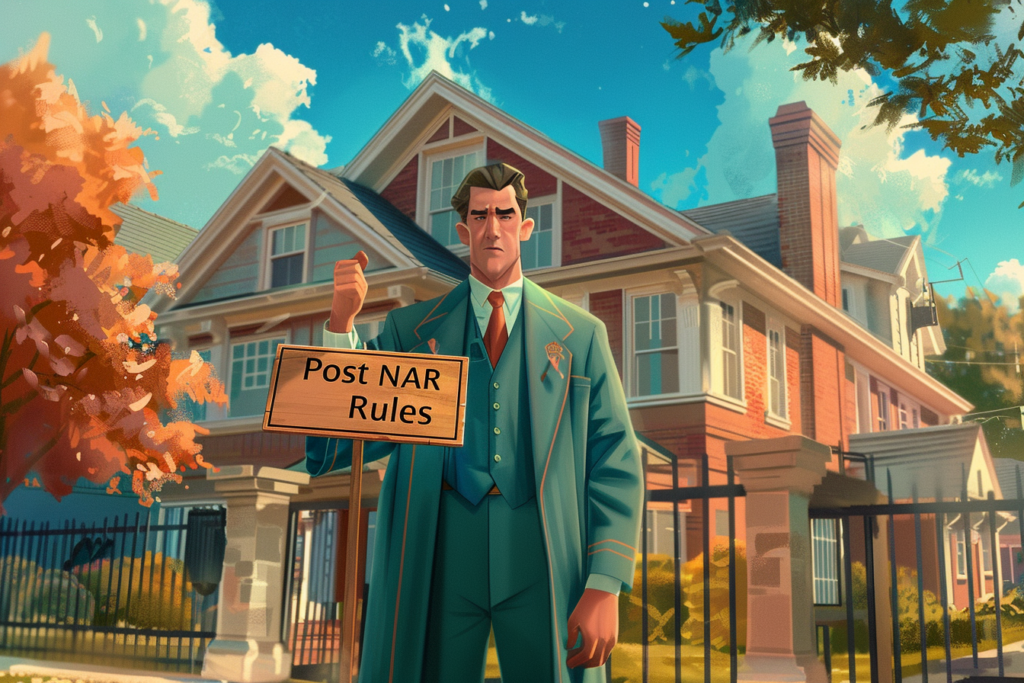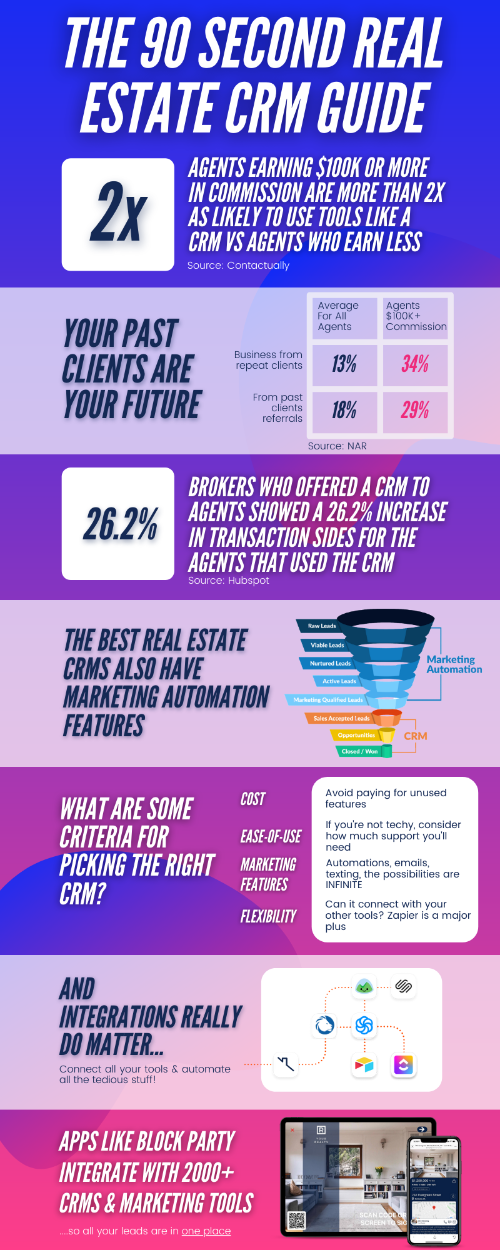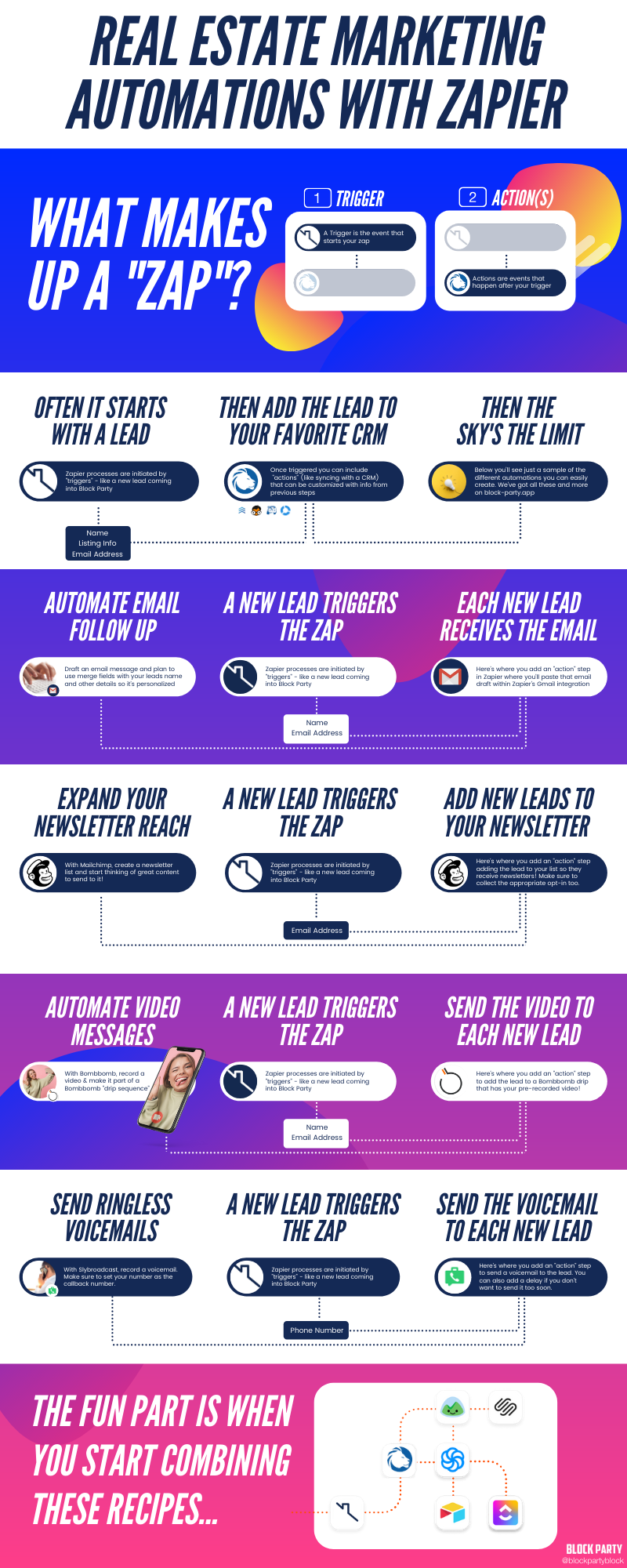What does the NAR Settlement mean for Open Houses?
Much debate has occurred over the value of Open Houses as a way to attract real buyers to a listing AND as a general prospecting strategy.
But a lot of that debate took place pre-NAR Settlement. So what does the NAR settlement mean for Open Houses? This question adds another layer of complexity to the open house discourse but generally speaking, the Open House will be alive and well post NAR Settlement. Matter of fact there may be a significant uptick in Open House activity based on what some experts have said.
Open houses are the ONLY way you can show a property without a signed agreement. This alone is enough of a benefit, but the strategy here is to attract new leads, expand your database, and secure multiple agreements (for viewing other properties).
As part of our efforts to simplify this discussion and keep our fellow agents on the top of their game, we will delve into all the nuances of Open Houses post-NAR Settlement.
- Do Open House Visitors need to sign a buyer agreement to enter the Open House
- Will Open House Activity Increase Post NAR Settlement?
- How can agents make the most out of Open Houses Post NAR Settlement?
- Challenges with Open Houses Post-NAR Settlement
- FAQs for Open Houses Post Settlement
Do Open House Visitors need to sign a buyer agreement to enter the Open House
For most this is the captain obvious question. And the answer is NO.
From NAR Settlement FAQ:
Q: If an MLS Participant hosts an open house or provides access to a property, on behalf of the seller only, to an unrepresented buyer, will they be required to enter into a written agreement with those buyers touring the home?
A: No. In this case, since the MLS Participant is only working for the seller, and not the buyer, the MLS Participant does not need to enter into a written agreement with the buyer.

However, as we’ll detail further below, the absence of a signed written agreement does not mean there’s no process change at all.
What’s changing with Open Houses Post-NAR Settlement?
Post settlement, drawing a clear line between representing the seller and the buyer at an Open House is critical. That involves a few different steps (and the specifics can vary by region).
- By default an agent hosting an Open House needs to start by representing the seller. Some states like California require that this made clear to the visitor immediately via a form that visitor fills out and reviews (we support these forms digitally within our app).
- When you’re approaching the line which could be construed as “working with” a buyer, agents need to stop and have a conversation about buyer representation and share the appropriate forms needed to proceed.
- Once these forms are signed and agreed upon, an agent can then provide their services to a prospective home buyer at an Open House and beyond (depending on the details of the agreement).
Many regions will be adding new disclosures for all visitors during Open Houses and even more involved agreements when agents at an Open House (or showing) begin formally “working with” a buyer. Check out our post on Open House disclosures for the details by region.
The good news is that Curb Hero does support various disclosures and forms within its digital Open House sign-in.
Will Open House Activity Increase Post NAR Settlement?
An immediate outcome of the NAR settlement is the surge in unrepresented buyers attending open houses. This phenomenon is attributed to buyer reluctance to sign a buyer representation agreement (which now needs to detail buyer’s agent commission) in order to schedule a property showing.
What does this mean for the listing agent?
For better or worse, many buyers will decide that paying for their own agent is either impossible or not worth it. That will result in them researching which properties they’d like to see and contacting the listing agent directly. With the increase in direct buyer interest, listing agents will need to decide where their time (which includes their team’s time) is best spent:
A) Holding one by one property showings with every buyer (and getting each to sign a buyer agreement beforehand).
B) Directing all interested buyers to the scheduled Open House (where no one has to sign a buyer broker agreement)
Choice B is the clear winner here and this is why savvy listing agents are more likely consider holding Open Houses.
How can agents make the most out of Open Houses Post NAR Settlement?
With such a major shift in business practice and a corresponding shift in consumer behavior, there will be opportunities created for agents that are able to adapt.
Maximize opportunities to connect
Treat the Open House as a casual audition for either a buyer or seller consult. So have an attractive pitch for potential clients to set up appointments.
If there’s a buyer that seems engaged and open to getting an agreement in place right there, be ready with the necessary documents so you can close them there. According to realtor.com data, 68% of consumers work with the first agent that they meet in person. Another massive reason why Open Houses are a major opportunity.
At a minimum, agents should capture every visitor’s information – we’ve got a dedicated post on this here…but Curb Hero is a free tool for agents to get Open House visitors to sign-in:
Open Houses as a Pillar of Marketing
Agents that understand the power of experiential marketing will make every Open Houses a showcase for their marketing abilities. By creating a memorable atmosphere during Open Houses (similar to a retail experience) agents can boost their brand in the eyes of prospective clients.
And this includes those “nosey neighbors”. Open houses not only attract potential buyers but can also be treated as neighborhood events to attract potential LISTINGS. Creating an enjoyable experience can make a powerful impression with prospective sellers.
Coupling a truly memorable on-site Open House experience with strong marketing can help listings achieve near-virality. Maybe not like a hot new dance on TikTok, but just a bit of peer to peer marketing can generate more demand along with recognition for your own skills by possible sellers.
In summary, adapting traditional practices to fit the ever-changing realities of the real estate world is invaluable in staying relevant. By understanding and leveraging these shifted paradigms, agents can ensure their open house techniques continue to generate interest, increase foot traffic, and ultimately, conversions.
Challenges with Open Houses Post-NAR Settlement
Yes there are lots of benefits in the post settlement era for agents that host Open Houses but there are drawbacks too.
The main difficulty now lies in managing these unrepresented buyers while adhering to the rules of the settlement. It’s more of a behavior shift when it comes agents holding back their services when they’re not allowed to provide them.
Another challenge will be getting the buyer agreement in place. Especially with many markets dealing with affordability issues, it could be challenging to get a buyer to sign an agreement stating how much they’ll have to pay for your services. Agents will need to get their pitch dialed in and hone their value proposition to overcome hesitant buyers.
FAQs for Open Houses Post Settlement
No. If you are simply visiting an open house on your own or asking a real estate professional about their services, you do not need to sign a written buyer agreement.
No. In this case, since the agent is only there at the direction of the listing broker or seller, the agent is not required to have a written agreement with the buyers touring the home.
After you begin “working with” an agent and at any point before you tour your first house together.
A buyer is “working with” an agent as soon as the agent begins to provide services, such as identifying potential properties and arranging tours. Agents who are simply marketing their services or speaking to a buyer—at an open house or by providing a buyer access to a house they have listed—are not considered to be working with the buyer.
Under the terms of the settlement, a “tour” is when a buyer who is working with an agent enters a home that is for sale or directs their agent to enter the home on their behalf. This includes when the buyer’s agent provides a live, virtual tour to a buyer not physically present.
(sourced from NAR)
Open houses remain a cornerstone in a real estate agent’s toolkit; they are valuable venues for quality engagement with potential buyers and even down-the-line sellers. Many top producers credit a significant portion of their success to Open Houses and with the NAR settlement changes this is likely to increase…along with the overall activity (and most importantly unrepresented buyers) at Open Houses.



